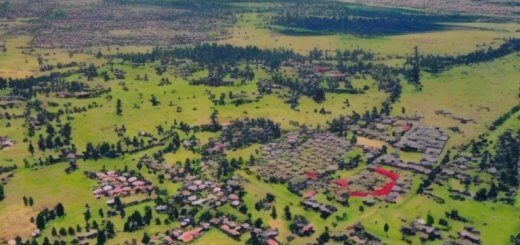Top Reasons Why Invest in Nakuru, Kenya: Returns, Locations, and Acquisition Process
Investing in Nakuru, Kenya: Returns, Locations, and Acquisition Process
Nakuru is widely considered one of the top real estate investment destinations in Kenya, offering lucrative returns driven by surging demand and advantageous local conditions. This guide provides an in-depth look why invest in Nakuru, covering potential returns, ideal locations to target, and the acquisition process for buying land as an investment vehicle.
Why Invest in Land in Nakuru?
Strategic Central Location
Nakuru County sits almost dead-center within Kenya, making it a strategic hub connecting northern and southern regions. Major transportation corridors like the Nairobi-Eldoret Highway and Kenya-Uganda Railway run through Nakuru. Its central position gives Nakuru excellent access to supply chains and markets in nearly all directions throughout Kenya and beyond. Land near key infrastructure benefits from reliable logistics.
Economic Growth Prospects
Nakuru has been identified as a priority region for national development, selected to become a new Special Economic Zone (SEZ) focused on export manufacturing, agribusiness, logistics and tourism. Massive public and private investment is planned, with over 50 billion KES in developments like roads, railways, cargo terminals, industrial parks, resorts and free trade zones in the pipeline. This will greatly expand economic activity and land values around Nakuru.
Young, Growing Population
Nakuru County has Kenya’s fastest growing population at over 2 million residents. Around 60% are under age 35, providing a strong base of young workers, entrepreneurs and consumers to drive economic expansion. Congestion in Nairobi has also fueled an influx of residents migrating to Nakuru and fueling housing demand. These demographics support a thriving real estate market.
Natural Resources
Nakuru sits in the rich Rift Valley region near bountiful water, wildlife, forests, minerals and fertile farmland. This natural endowment supports key industries like agriculture, tourism, mining and renewable energy that rely on land access, creating steady demand for leases and purchases.
Favorable County Government
The Nakuru County government recognizes the strategic role land will play in achieving ambitious development goals and supports ongoing investments. Streamlined approvals, flexible land use policies, investment incentives and improved infrastructure provide a favorable environment for real estate investors.
What Returns Can I Expect on Nakuru Land Investments?
Projected Capital Appreciation
Due to rising demand from rapid population growth, improving infrastructure attracting businesses, and increased housing needs outstripping supply, land prices in Nakuru are expected to continue appreciating substantially. Average prices for raw land rose over 200% between 2015 to 2020. Capital gains of 10-20% per year are realistic forecasts moving forward in both urban and rural areas.
Income from Constructing Rentals
Constructing residential or commercial buildings for rental income on Nakuru land purchases can yield strong ongoing returns. Gross rental yields of 8-12% per year are achievable on quality buildings. Leveraging debt financing also improves overall returns. Steady in-migration of workers and families provides a deep pool of tenant prospects.
Profits from Value-Added Farming
Purchasing agricultural land near Nakuru offers opportunities for high-return farming activities like greenhouse production, aquaculture, poultry, specialty crops and agroforestry. With access to markets, agricultural lands can generate operating profits of 30% or more annually in skilled hands. Appreciating land values also build equity over time.
Where are the Best Locations to Buy Nakuru Investment Land?
Within Nakuru Municipality
Due to congestion and rising demand in the city center, any freehold lands available for purchase within Nakuru municipality offer strong prospects, especially near busy corridors like Kenyatta Avenue or close to landmarks like Afraha Stadium, Menengai Crater and Hyrax Hill. Even small plots can become valuable commercial developments.
Along Major Highways and Roads
Key transit routes around Nakuru like the Nairobi-Eldoret Highway, Kisumu Road and Kampi Ya Moto Road continue urbanizing rapidly. Purchasing land along these major thoroughfares can pay off handsomely as expanding suburbs engulf surrounding areas. Road-adjacent plots also suit commercial uses like fuel stations, shopping centers and truck stops.
Near Industrial Parks and SEZs
There are several planned and active industrial parks around Nakuru, including at Lanet, Mwariki, Kimathi and Kagoto. Land near these hubs or the new Special Economic Zones will attract manufacturing, warehousing and distribution firms seeking convenient access. Values rise quickly once infrastructure is in place.
Proximity to Amenities & Institutions
Land close to anchors like hospitals, universities, malls, sports facilities and entertainment centers hold appeal for residential and retail developers looking to house a built-in customer base. As Nakuru’s amenities expand, surrounding land values benefit. Plots near established institutions also carry long-term potential.
Strategic Agricultural Areas
The most fertile agricultural zones near Nakuru are located northeast near Bahati, southeast past Makalia, west around Mau Narok and southwest near Njoro. These areas are ideal for crop production, livestock keeping, greenhouse farming and other agribusiness ventures that rely on accessible water and high soil quality.
What Does the Land Acquisition Process Entail?
Step 1: Identify Target Plots
Engage experienced real estate agents or brokers familiar with the Nakuru market to begin identifying ideal investment land based on your goals, budget and target returns. Mass media advertisements, property websites and developer networks can also uncover potential listings.
Step 2: Due Diligence & Valuation
Conduct thorough due diligence on any prospective land purchases, including:
– Verifying true owner and title deed to confirm legal rights to sell
– Surveying land to establish accurate boundaries
– Performing soil tests if farming planned
– Checking county zoning and land usage limitations
– Assessing any squatters rights issues
– Obtaining independent valuation to set purchase price
Step 3: Source Financing
Most local and foreign buyers will need to secure debt financing up to 70% of the purchase price from local banks like KCB, Equity and Cooperative Bank. Apply well ahead of transactions and have capital ready for the down payment balance.
Step 4: Make Offer & Sign Contract
Once satisfactory due diligence is complete, submit a written purchase offer outlining payment terms, contingencies, closing timeline and other details. After negotiation and agreement with the seller, sign the sale agreement to secure the land.
Step 5: Legal Work & Approvals
Your lawyer will now conduct additional title searches, draft transfer documents, and file for necessary approvals from Lands Ministry, county government, and Kenya Investment Authority for foreign buyers. The lawyer also facilitates tax payments.
Step 6: Complete Payment & Transfer
Final payment is made to the seller, either directly or into an escrow account. The title deed transfer process completes registration into the new owner’s name. Be sure all fees and taxes are paid before assuming possession.
Step 7: Development or Management
Plans for any construction, farming or other land use activities can now proceed. Ongoing maintenance, security and tenant acquisition also begins where applicable.
With proper guidance and preparation, all these reasons explain why you should think of Investing in Nakuru. Move quickly to acquire land before values rise further out of reach!


1 Response
[…] economic trends within East Africa also have a significant influence on the demand and prices for land for sale in Nakuru. The integration of the East African Community, for instance, has boosted intra-regional trade and […]